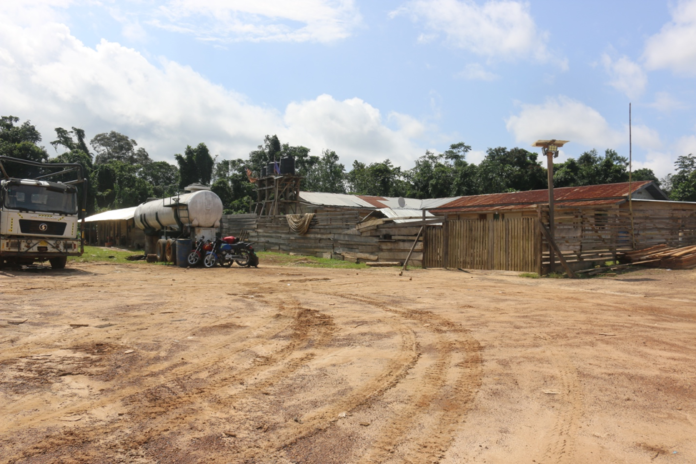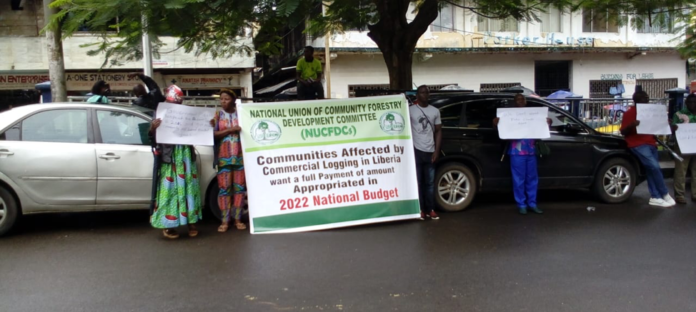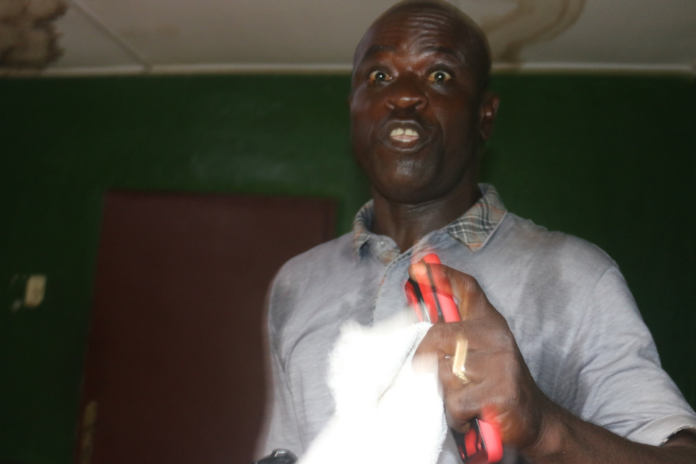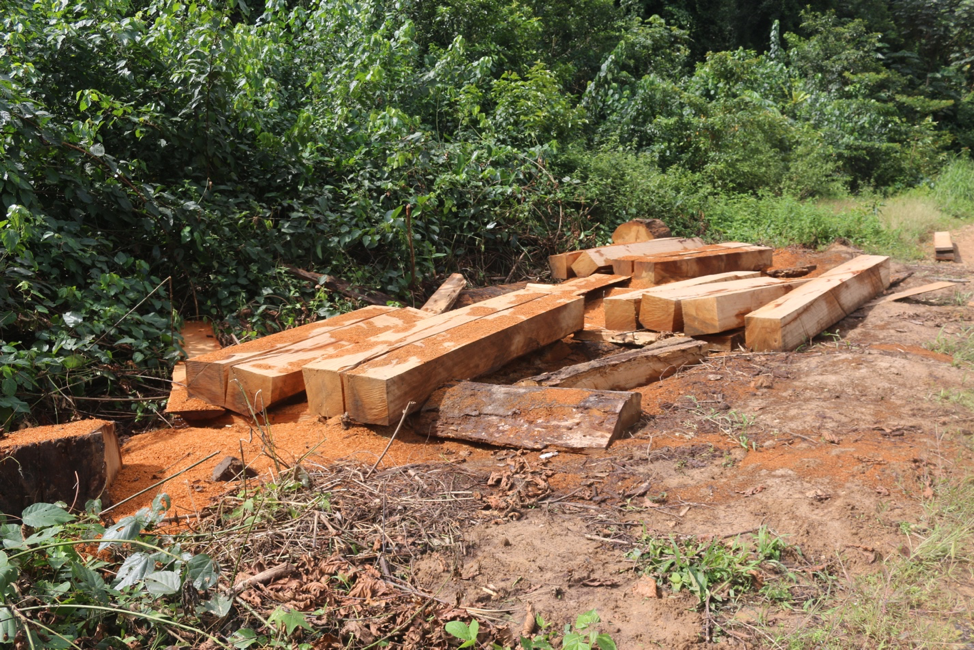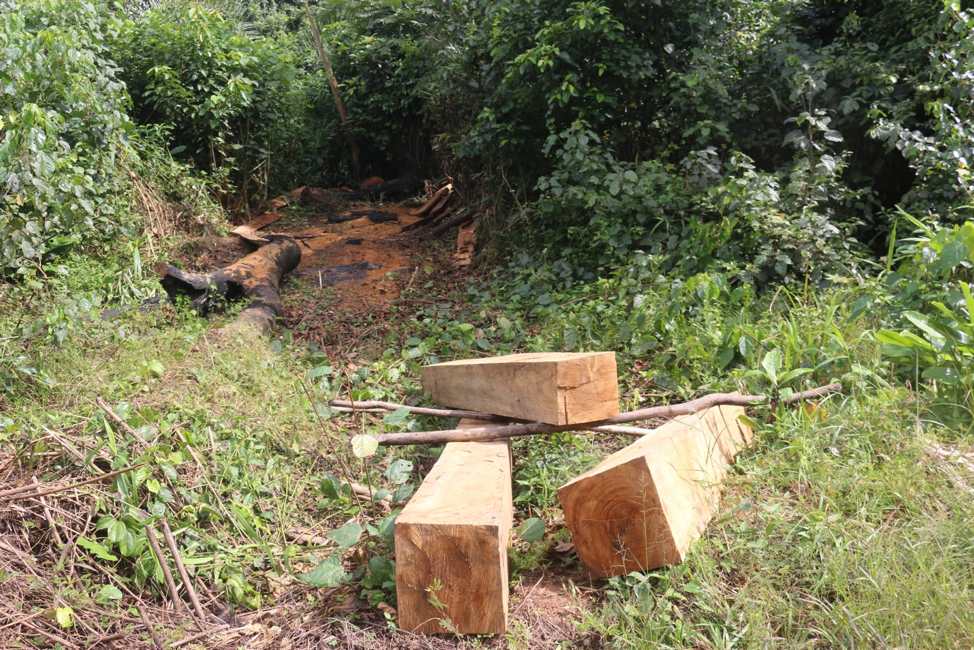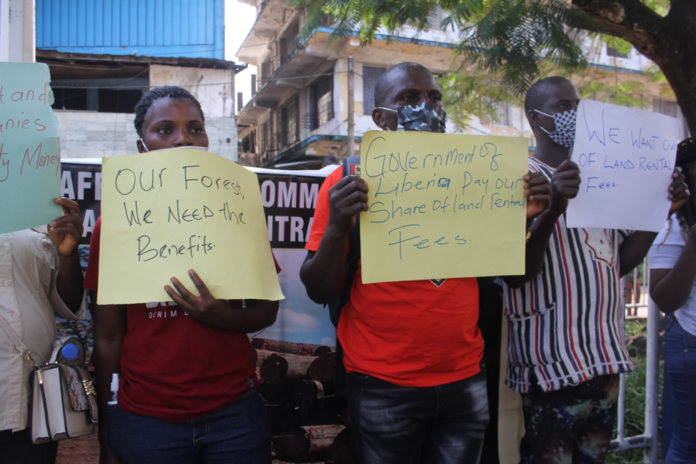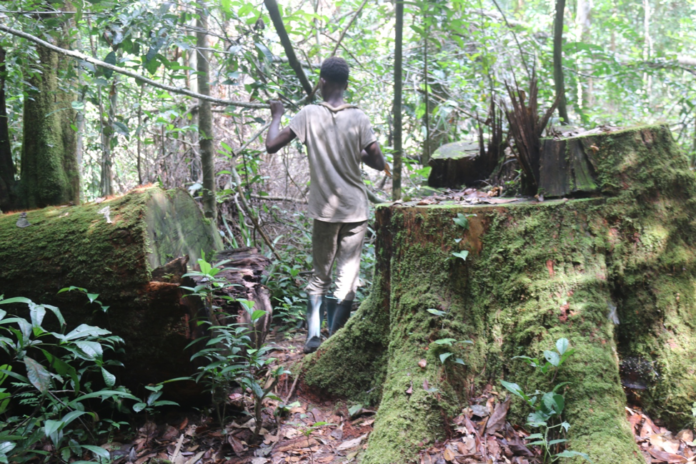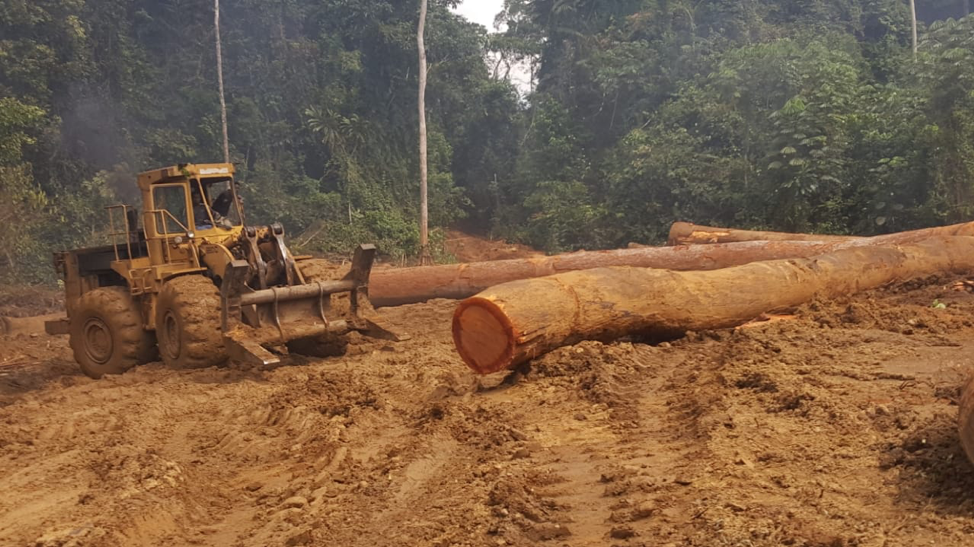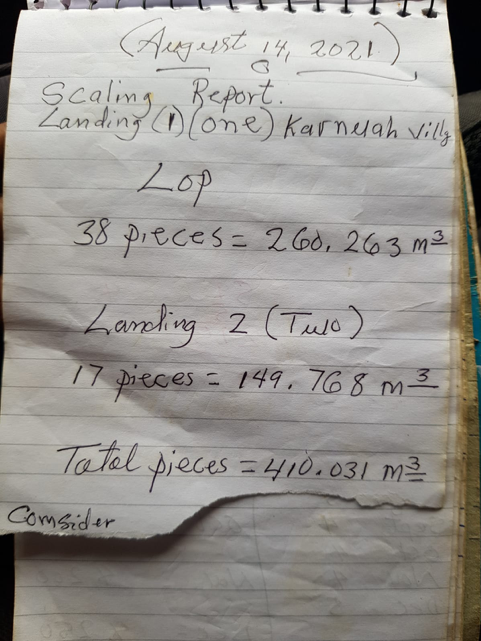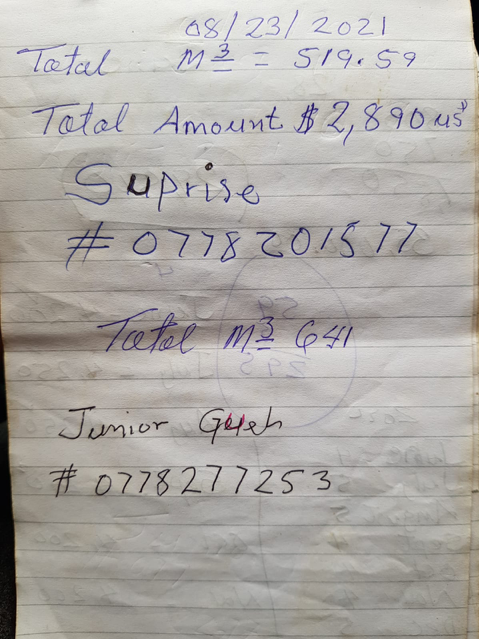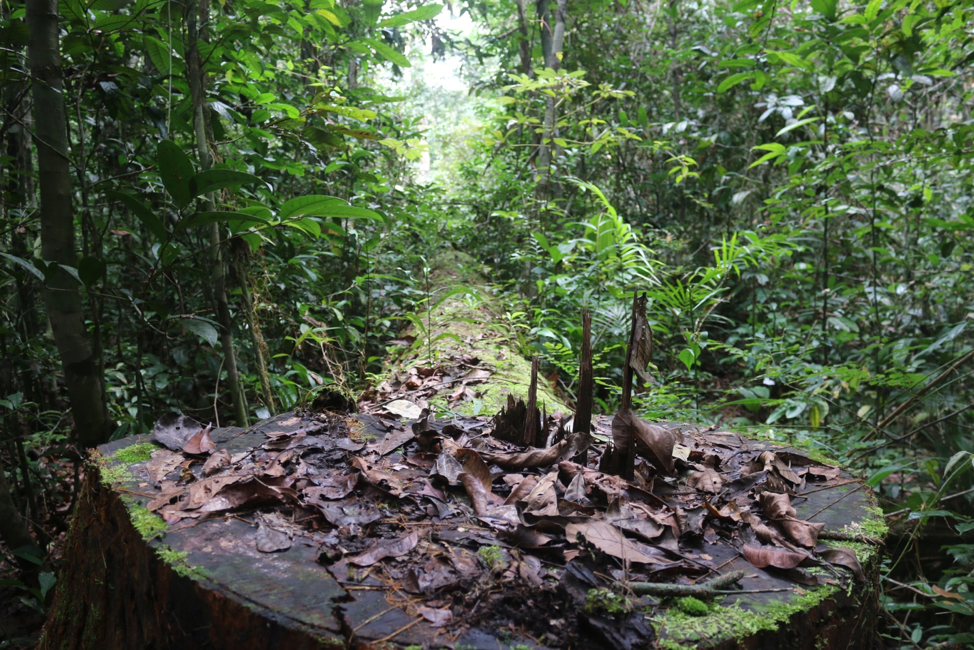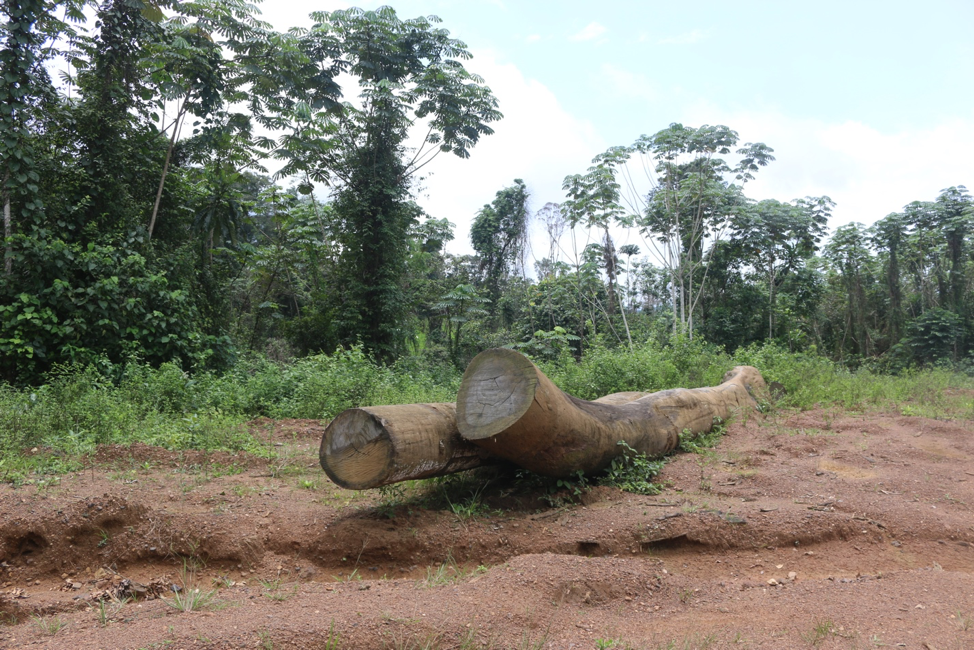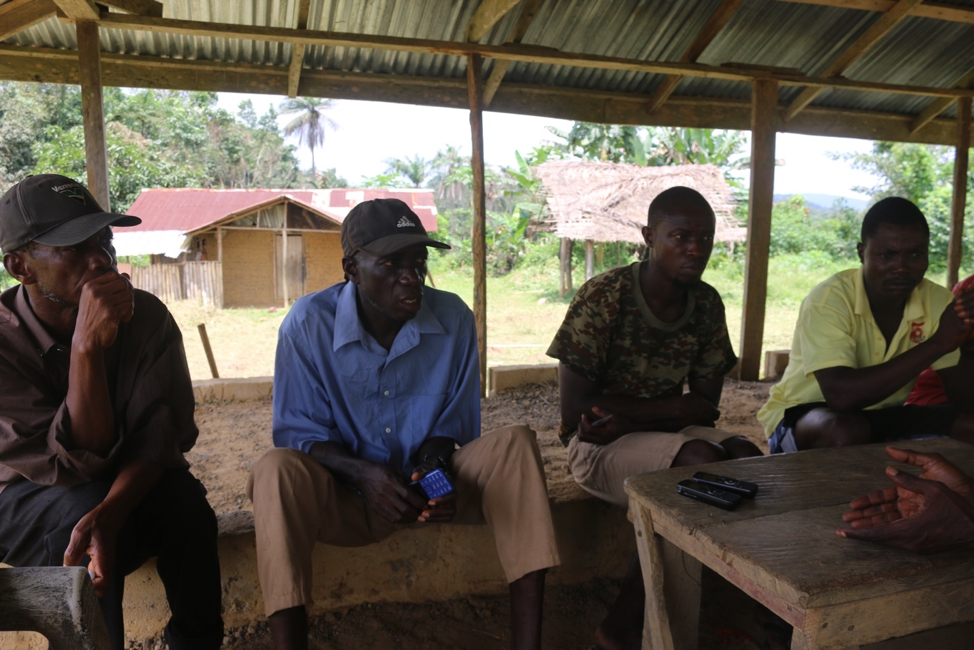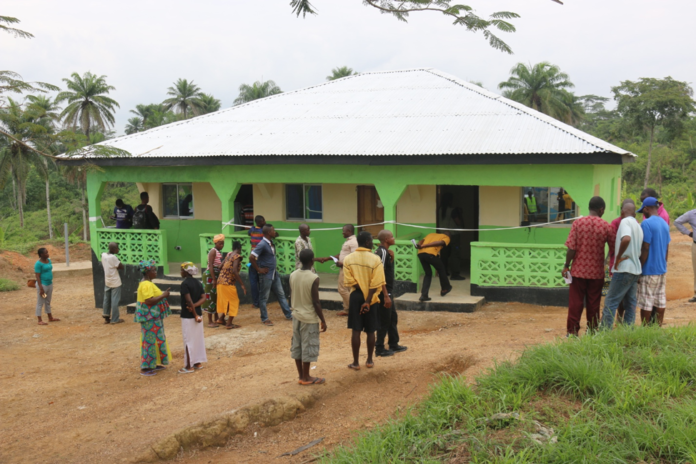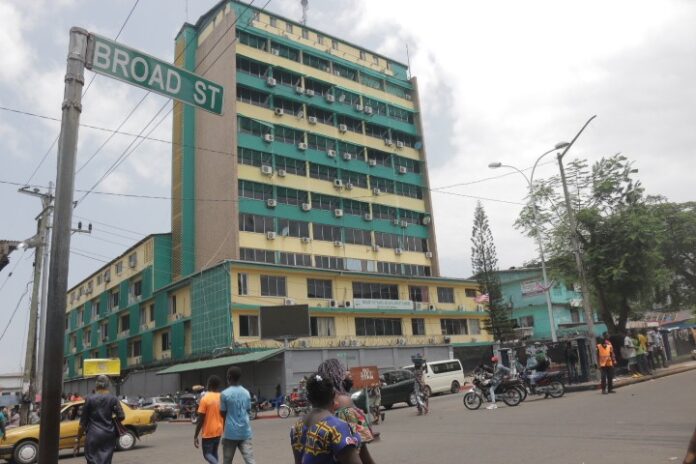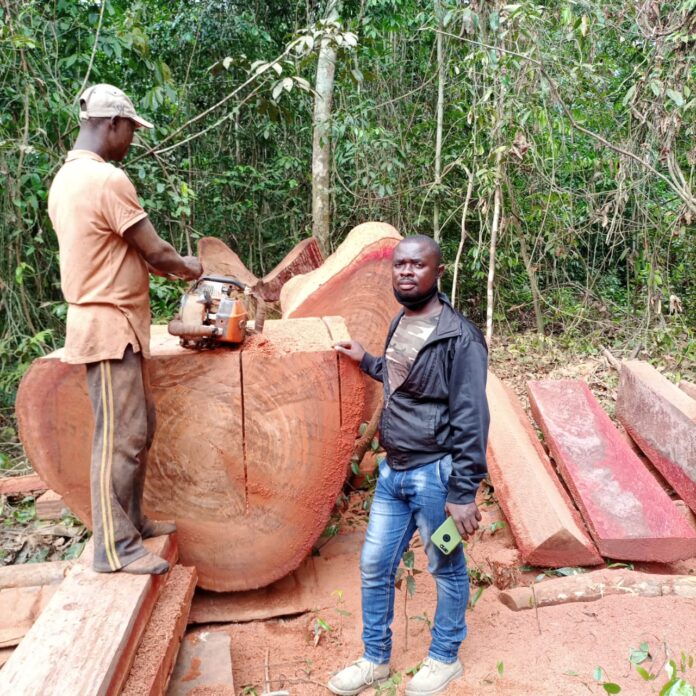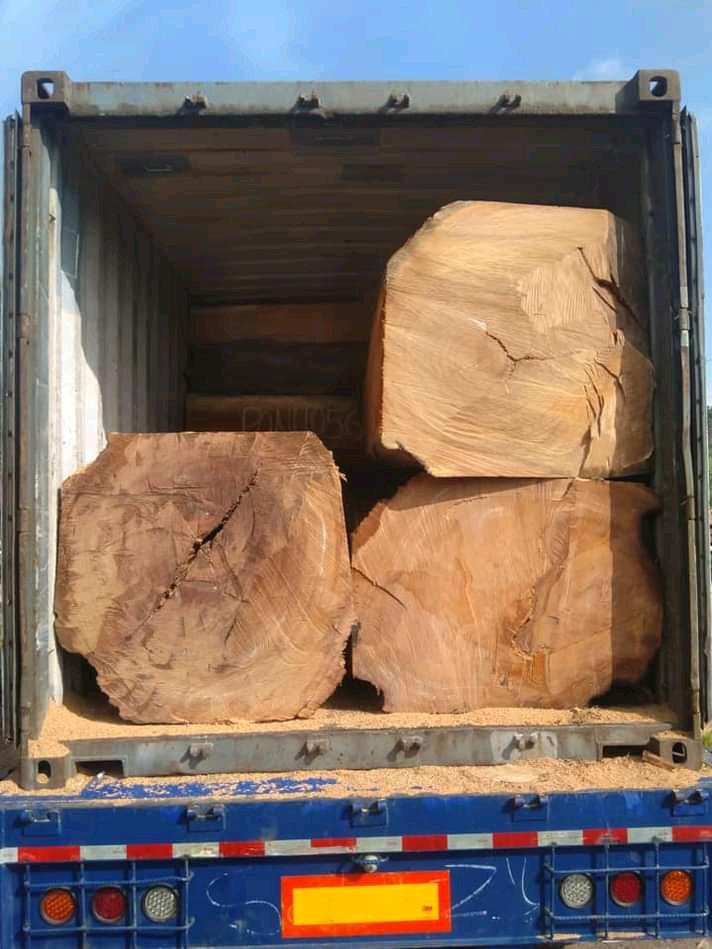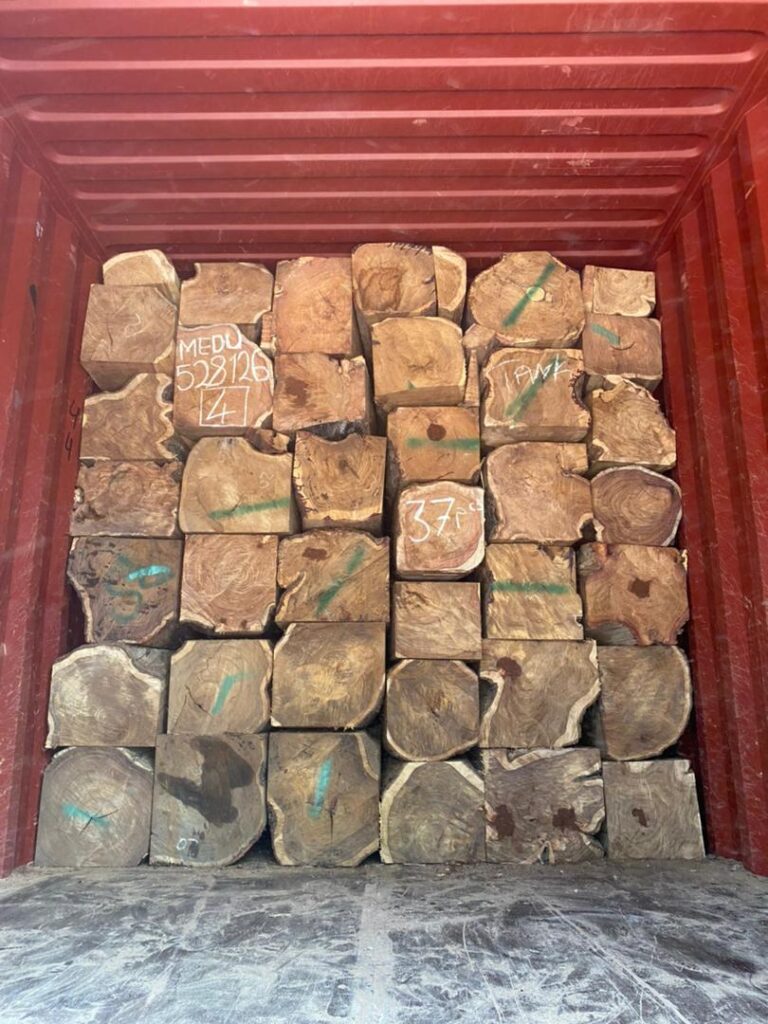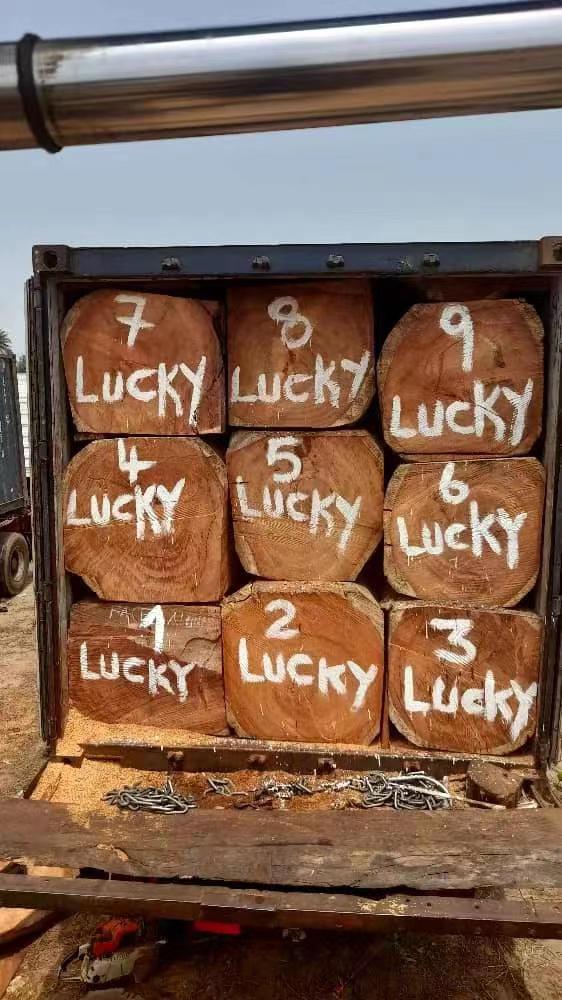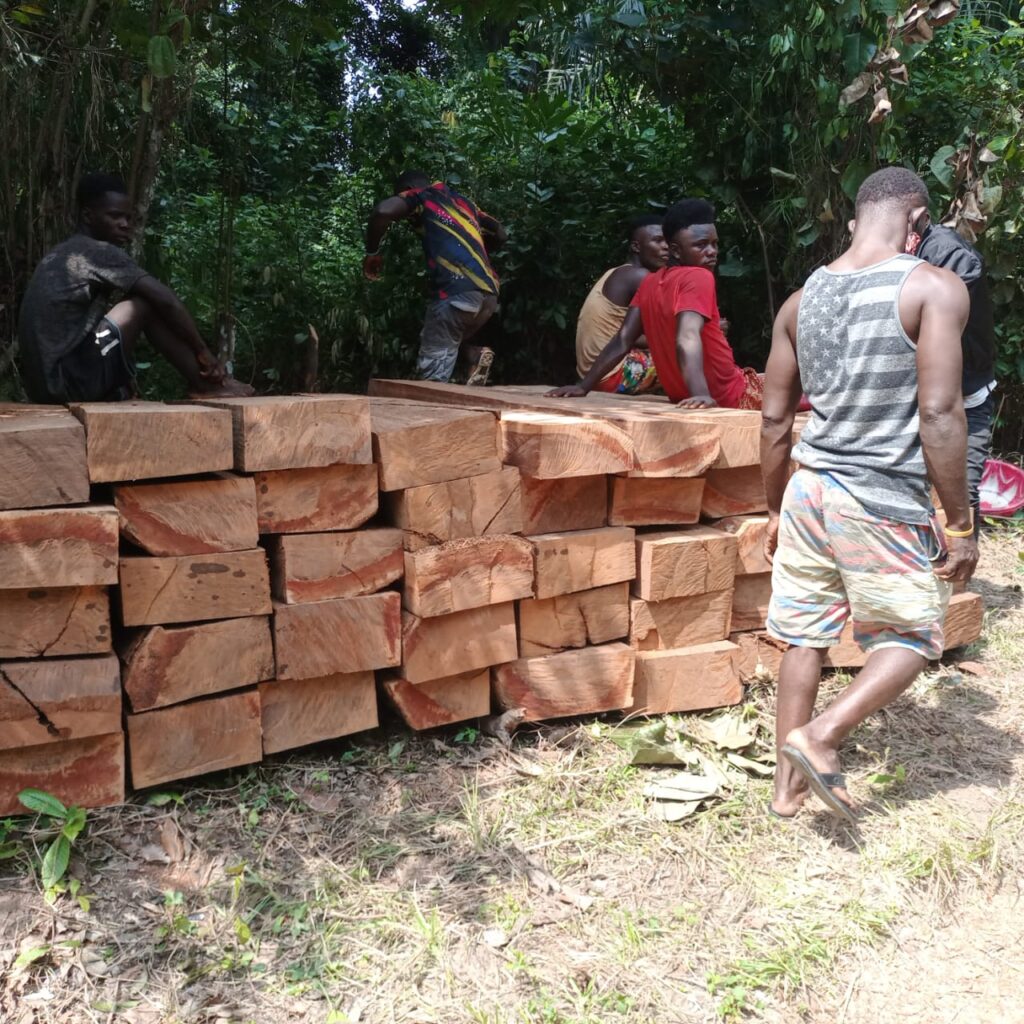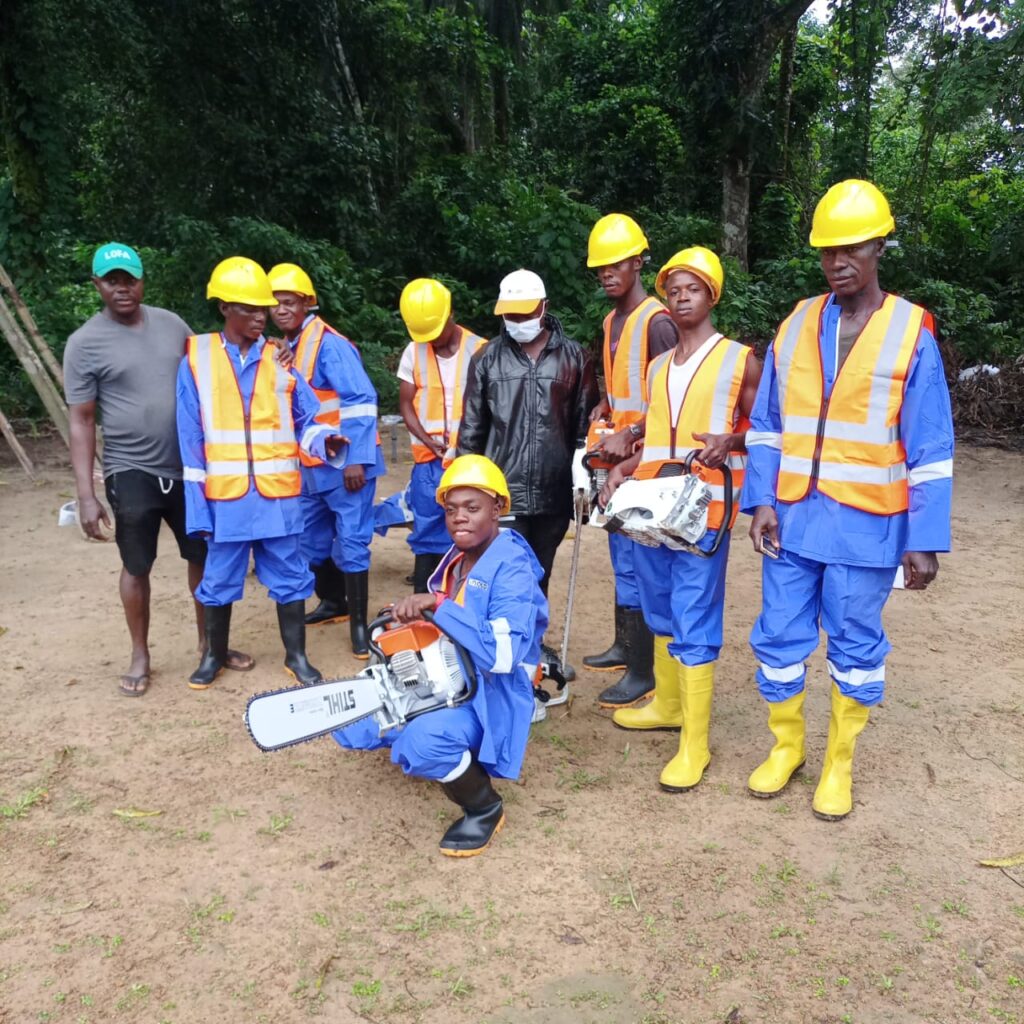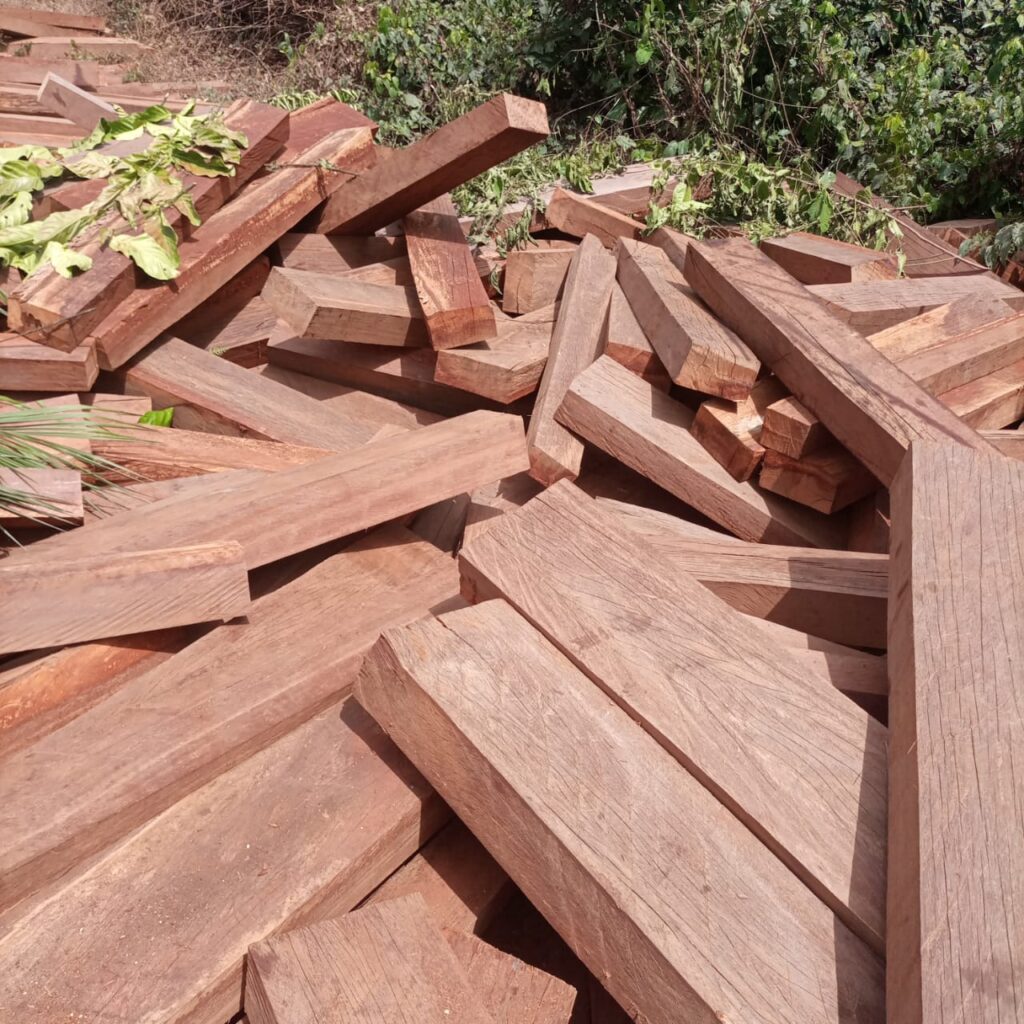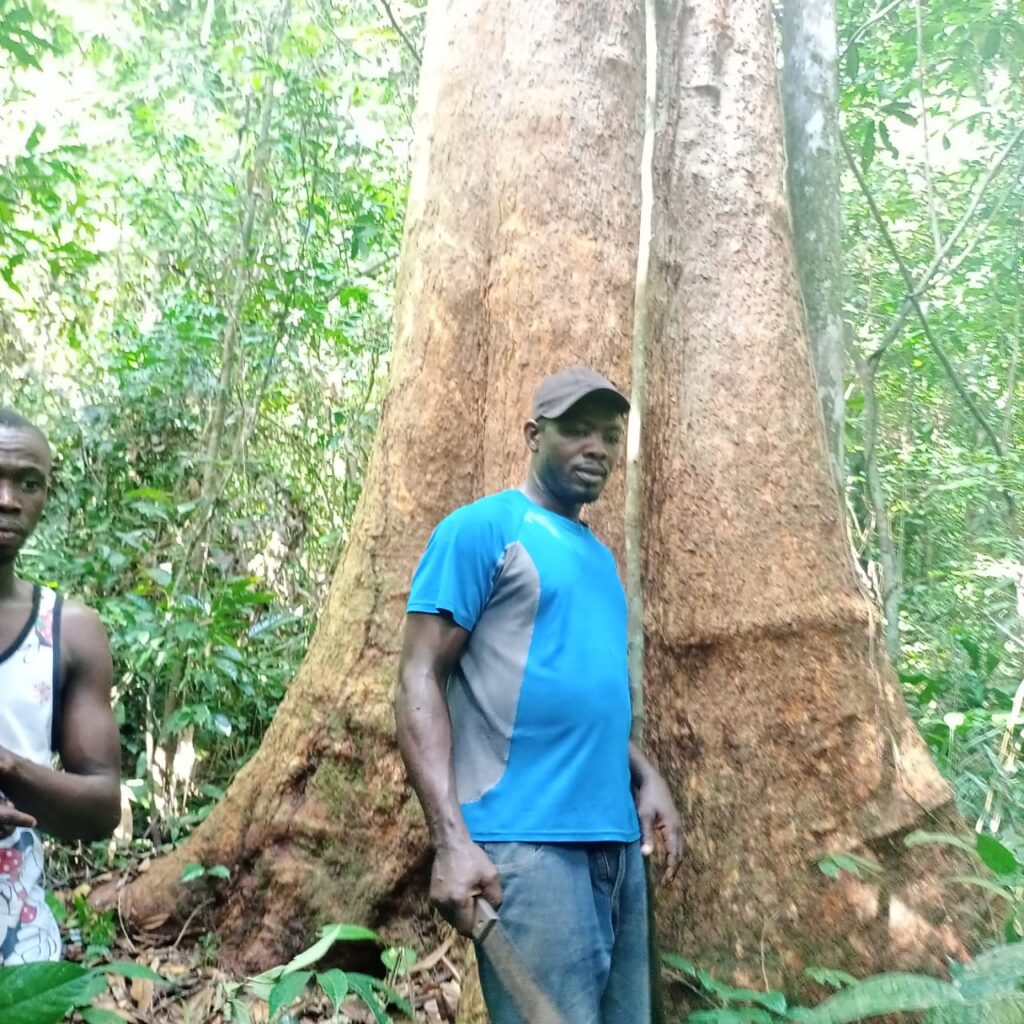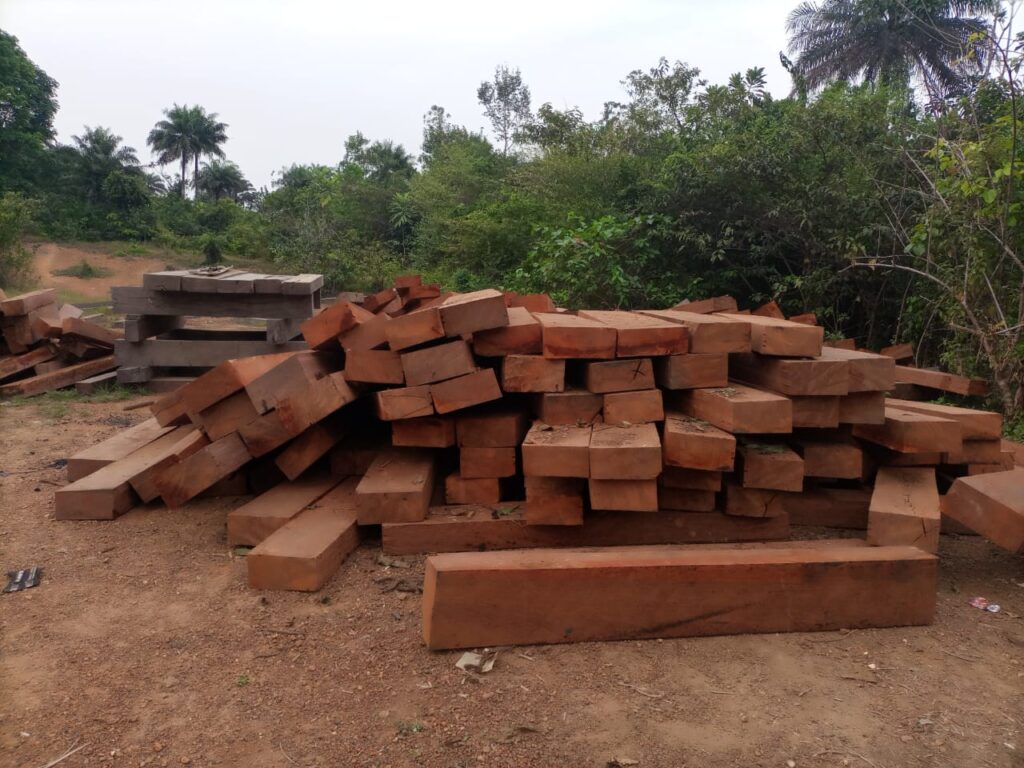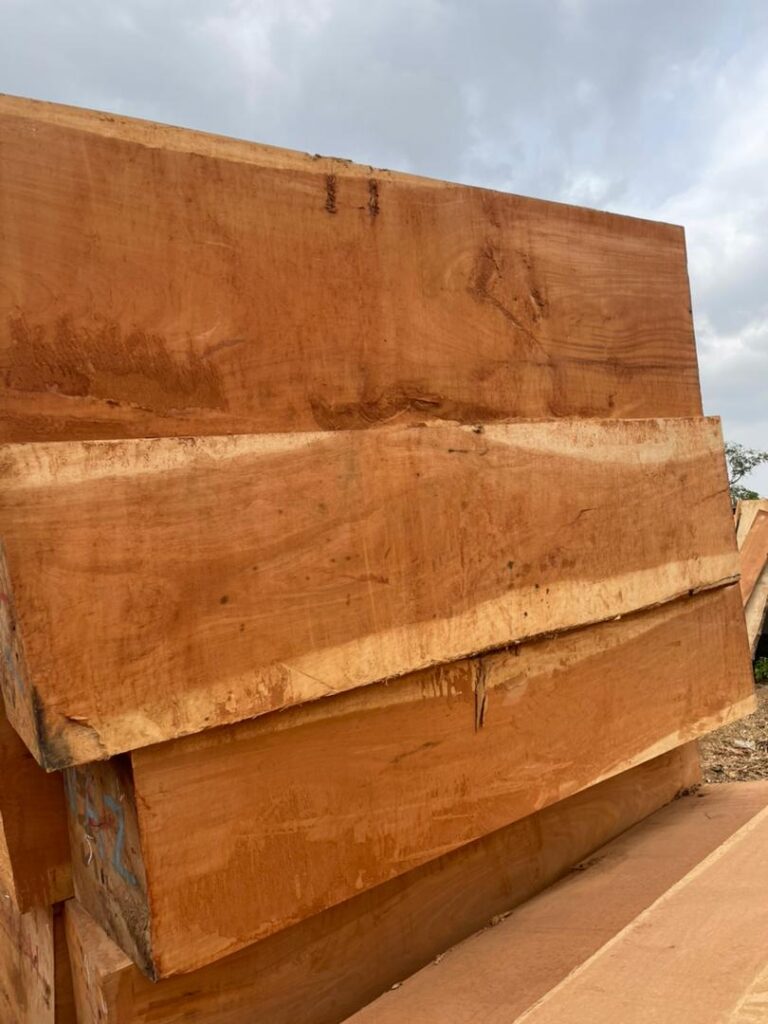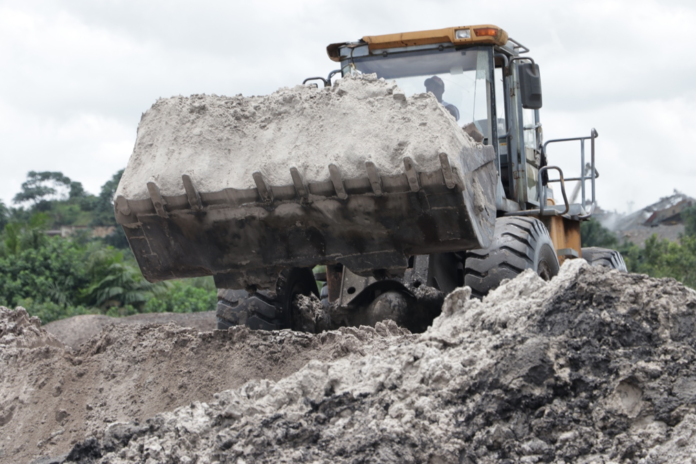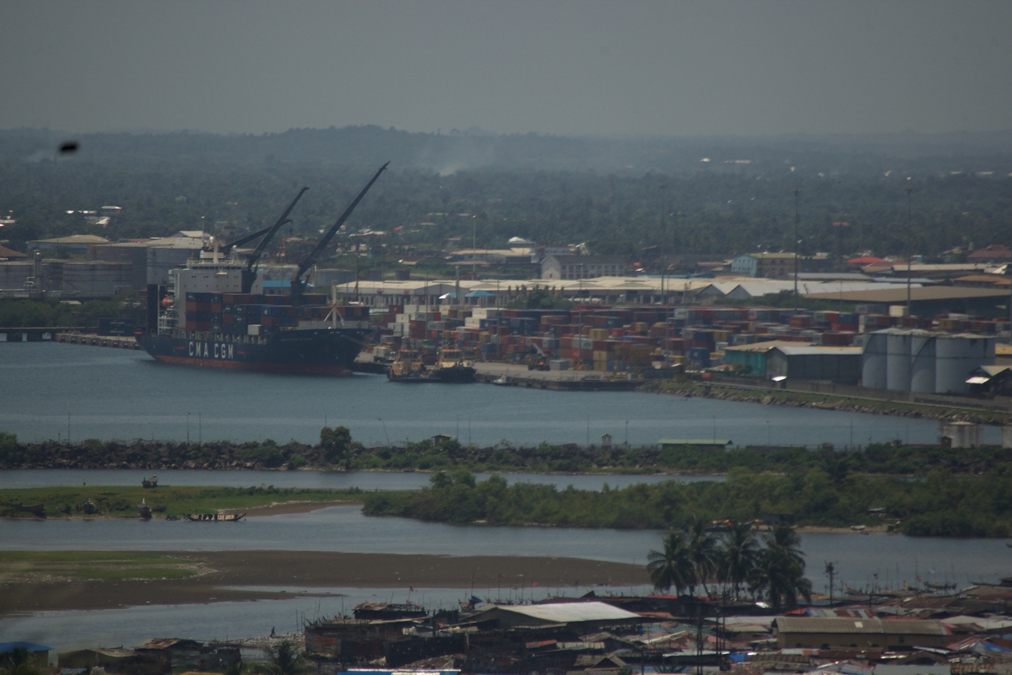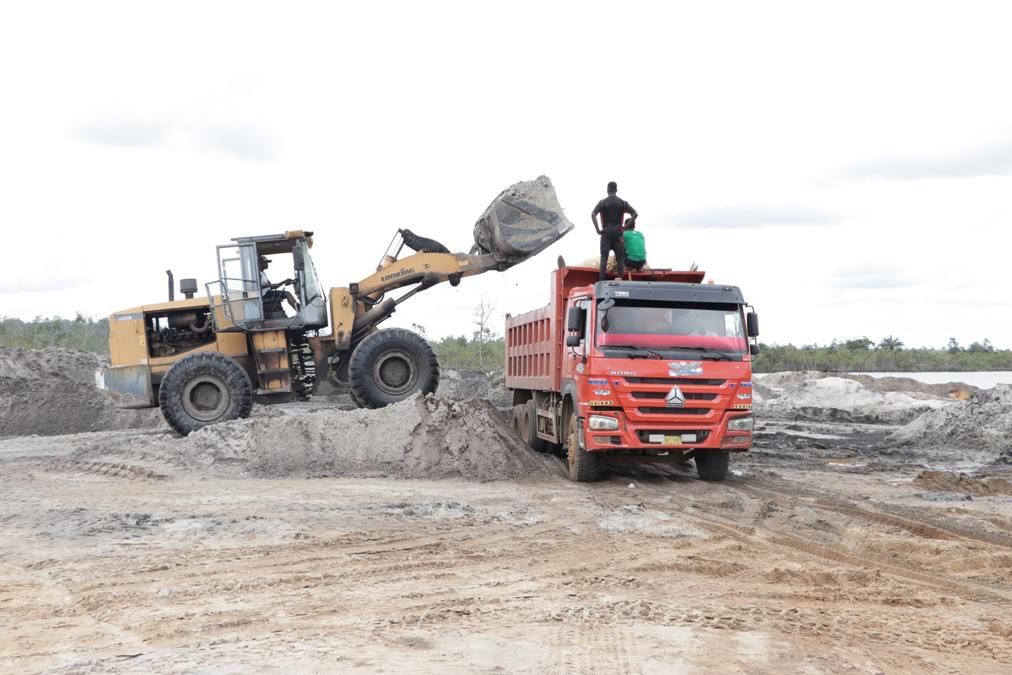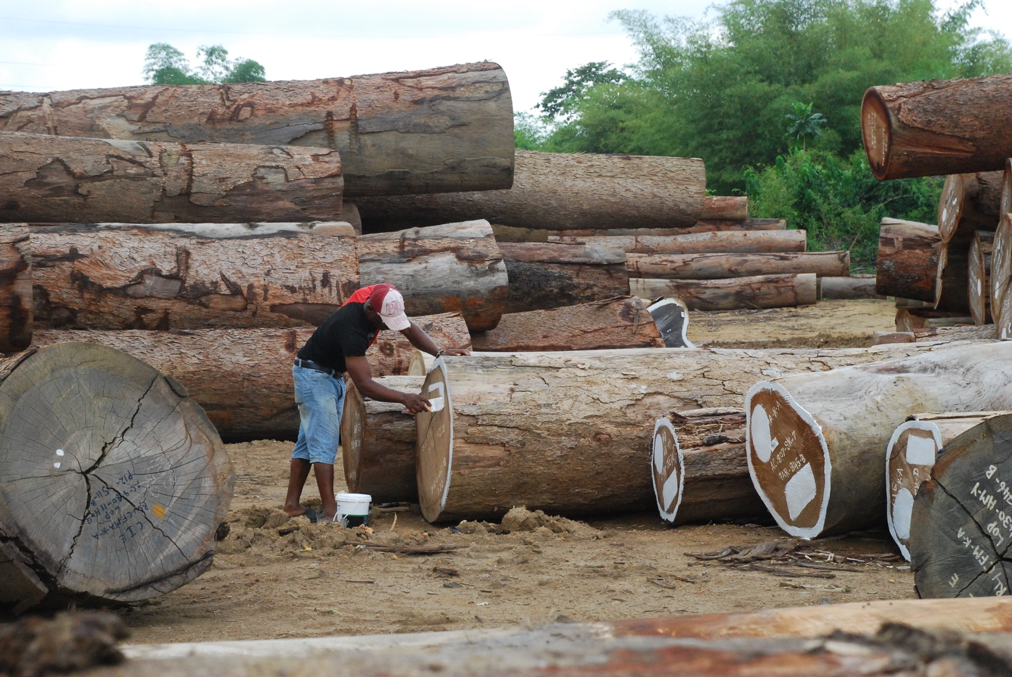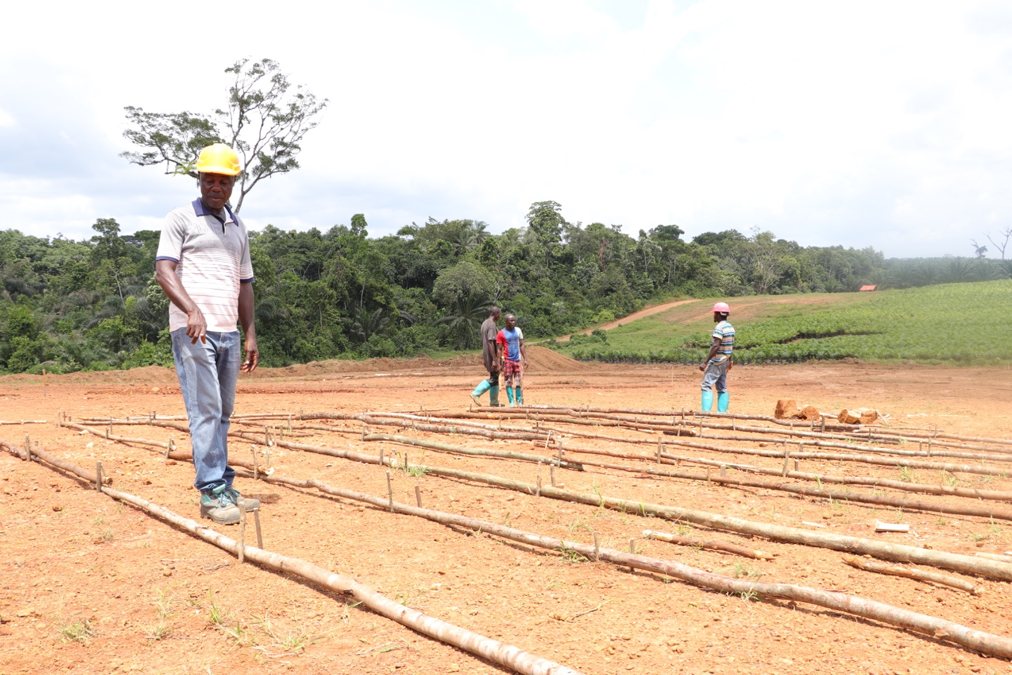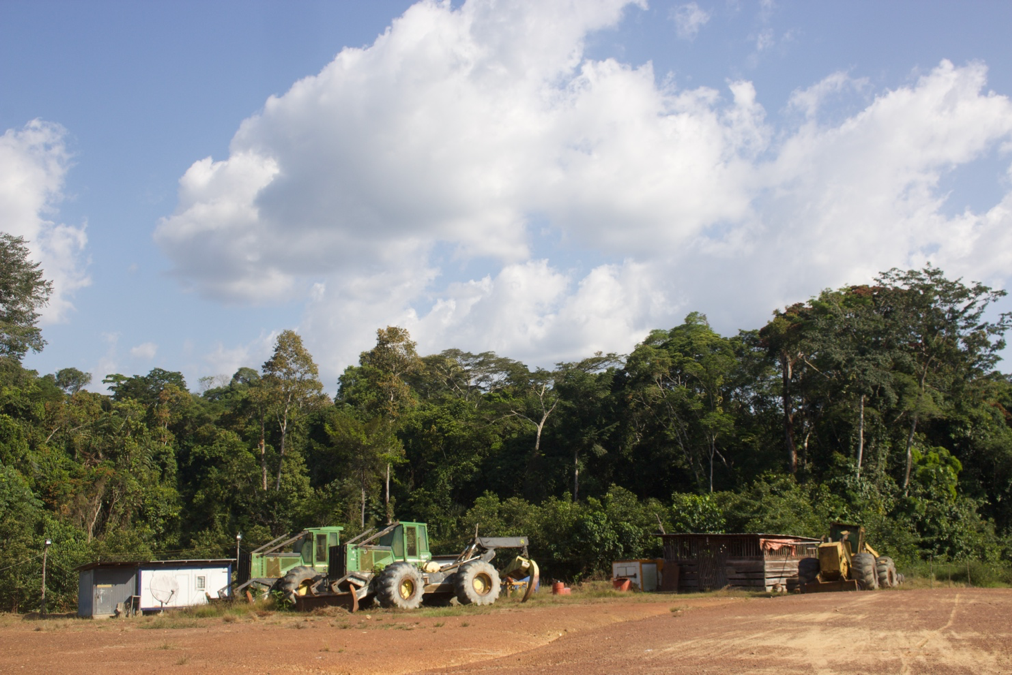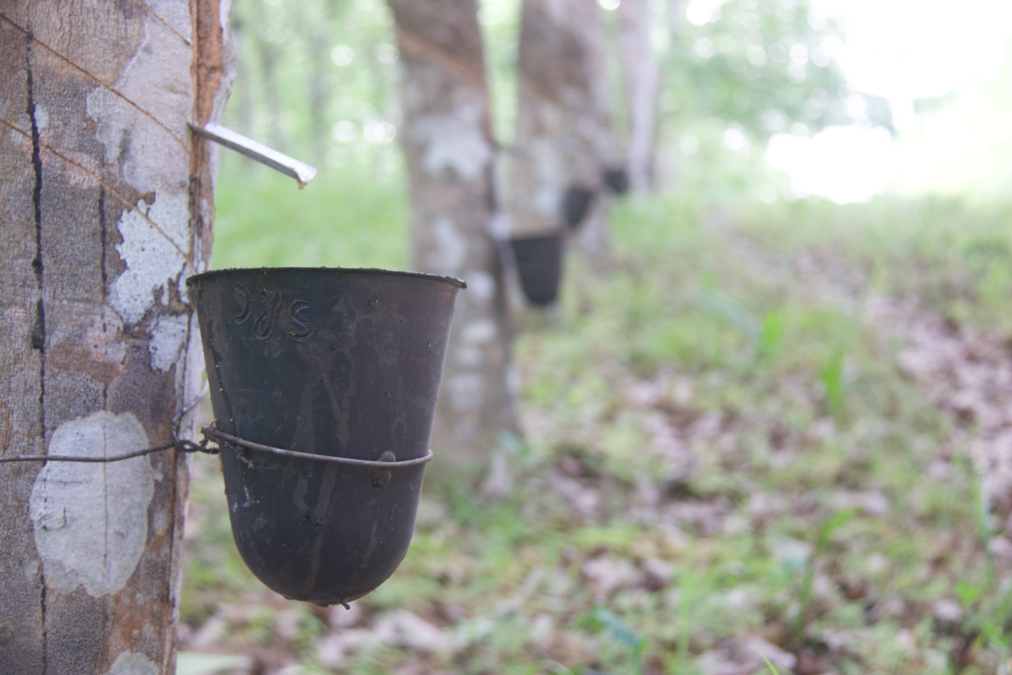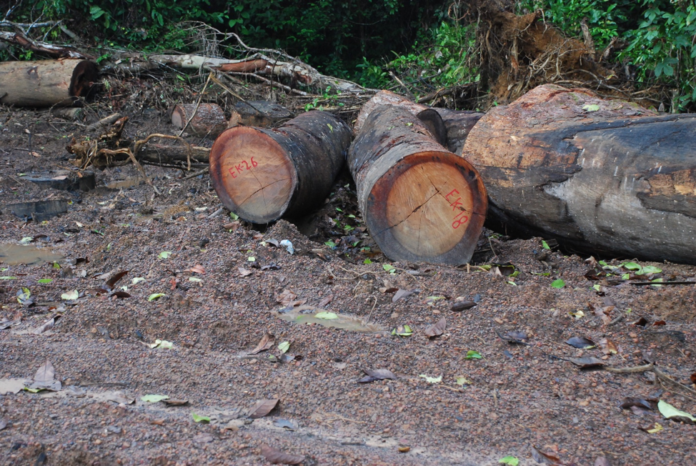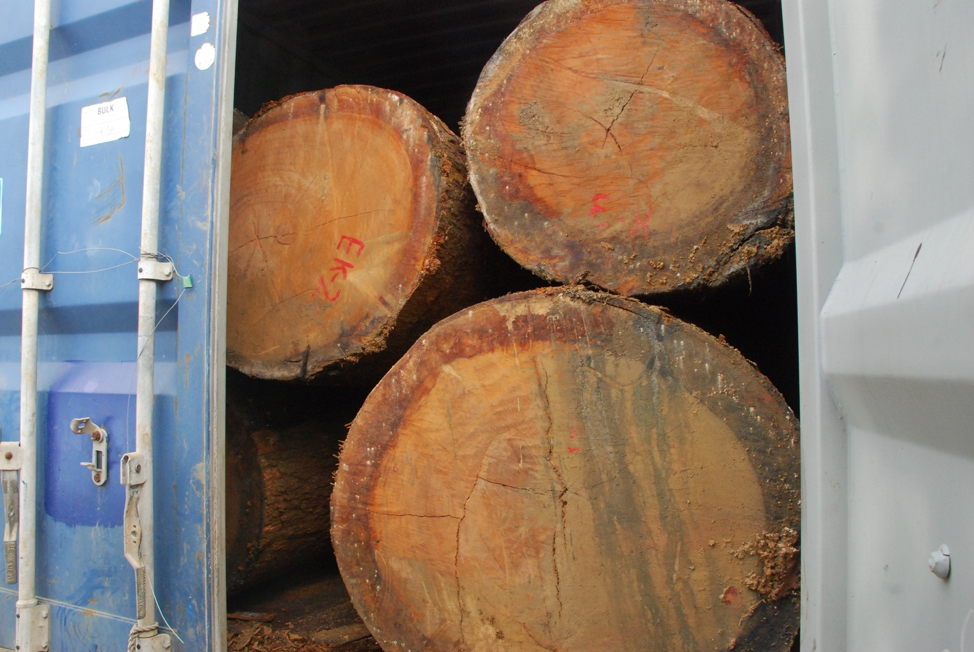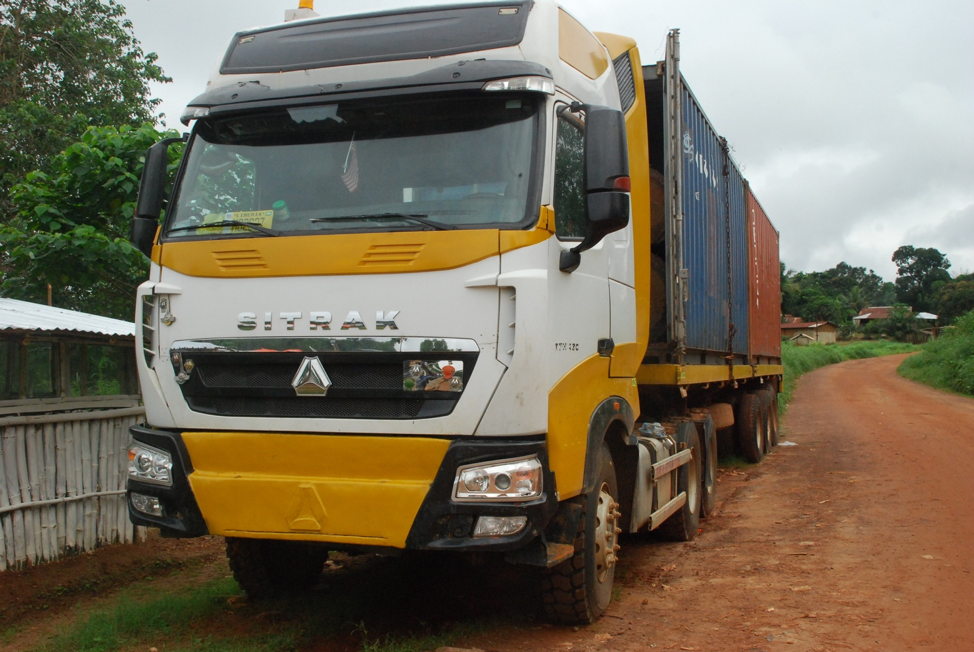Top: Masayaha’s camp in Saul Town, Grand Bassa County. The DayLight/Emmanuel Sherman
By Emmanuel Sherman
Editor’s Note: This is the third part of a series on a string of illegal activities by Masayaha Logging Company, which operates in Grand Bassa County.
SAUL TOWN, Grand Bassa County – Villagers affected by the operations of Masayaha Logging Company in Compound Number One B have halted the Lebanese firm’s work, demanding it pays some of the benefits owed them.
Masayaha owes the 25 towns and villages affected by its operations for use of their land, logs it has harvested, and scholarships.
“We will not allow any log to leave until they do what they supposed to do,” said Garsaweh Harris, the community leader who led the protest over the Worr Community Forest.
“I told them, I have four big cows and they are there protecting the forest no one can go there,” Harris said, hinting at the use of bushmasters, commonplace in traditional settings.
Ali Harkous, Masayaha’s owner and CEO, did not return questions we posed to him via WhatsApp for comments on the matter.
Magna, the initial contract-holder signed a 15-year agreement with the Worr Community Forest, covering 33, 337 hectares in 2019. It seemingly subcontracted the forest to Masayaha. In total, it owes the villagers US$34,025.767, according to The DayLight’s analysis of the company’s official records, and the community’s leadership. Magna’s owner and CEO Morley Kamara declined to speak on Masayaha’s operations.
The villagers demand payments of the fees and dozens of mandatory projects.
“We told the company that the scholarship issue was very important because the children are not in school,” said Alvin Fiske, the head of the community’s leadership. “Parents are coming to ask for their children’s tuition.”
Masayaha has performed even worse with projects than it has defaulted on payments. It has failed to pave and build a number of roads and bridges, handpumps, clinics and schools in affected towns and villages.
“The company will make promises and will not do it, this is the problem we have with them,” Fiske said, adding the majority of the company’s projects have not been completed.
“They built… a school opposite their office, which is not completed. They built one handpump in Saul town and one in Bettoe Town and that is about all.”
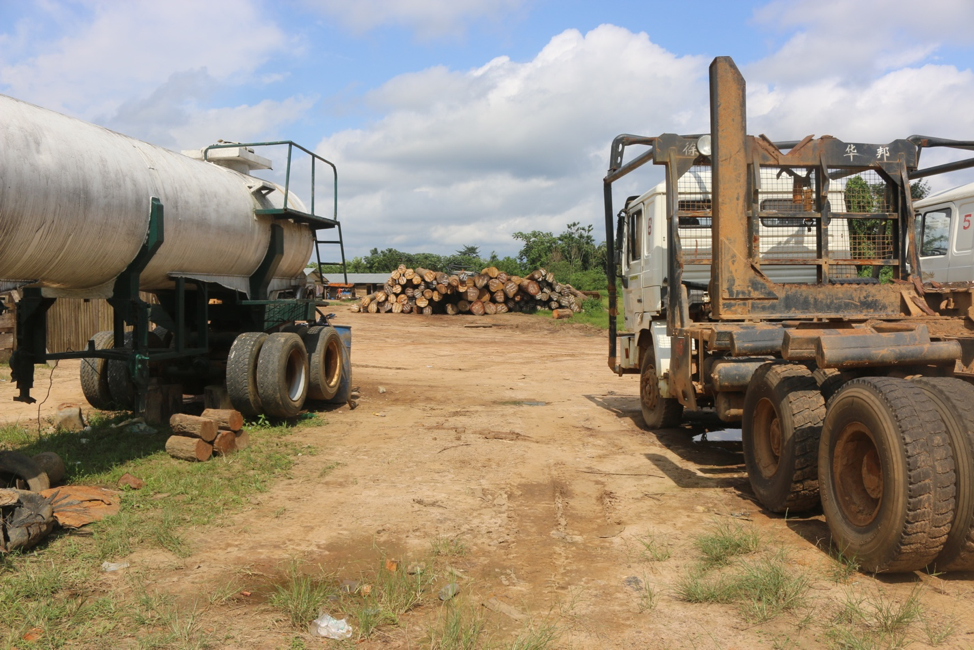
The agreement has been very controversial, with a string of illegal logging activities since. The FDA has failed to enforce forestry laws and regulations, approving the company’s harvesting each year.
Between 2020 and last year, Masayaha cut trees outside its contract area, according to the FDA and Société Générale de Surveillance or SGS, a Swiss firm, which created Liberia’s log-tracking system. The DayLight interviewed chiefs and elders who helped the company illegally harvest ekki woods outside its contract area. We visited Masayaha’s illegal felling sites, with felled trees, leftover logs, and earthmovers’ trails still visible.
FDA permitted Masayaha to ship logs that could have included the stolen, ironwoods, export records show. Between 2020 and last year, it exported 365 logs, 360 of them ekki woods.
“We did not have a problem going outside but why use our name and we are not befitting anything from it? That is our problem,” says Fiske.
Regulation on Confiscated Logs, Timber and Timber Products provides that FDA should seek a court order to confiscate and auction the illegally harvested logs Masayaha cut outside its contract area. It should fine the company two times for the first offense, and four times for repeated offense, the prevailing international price of the volume of logs it harvested in 2020 and 2021 respectively.
While Masayaha cut trees outside its contract area, it abandoned 595 logs it felled within the area, according to our count of the company’s production and export records. We counted 200 logs in an open field near the Bokay Town market on the Monrovia-Buchanan highway.
FDA has not taken any actions. The DayLight followed up at the Circuit Court in upper Buchanan, Grand Bassa, the county in which the illegal logging was done, the agency has not sought a court order to confiscate Masayaha’s illegally harvested logs.
Under the Regulation on Abandoned Logs, Timber and Timber Products, logs are deserted if they are left unattended for between 15 to 180 working days, depending on their location. FDA has also not acted, as there has been no petition at the circuit court in Buchanan nor announcement of abandoned logs at any radio station in the county, things the regulation demands.
Joseph Tally, FDA deputy managing director for operations, did not respond to questions sent to him via email on the protest action against Masayaha by the community.
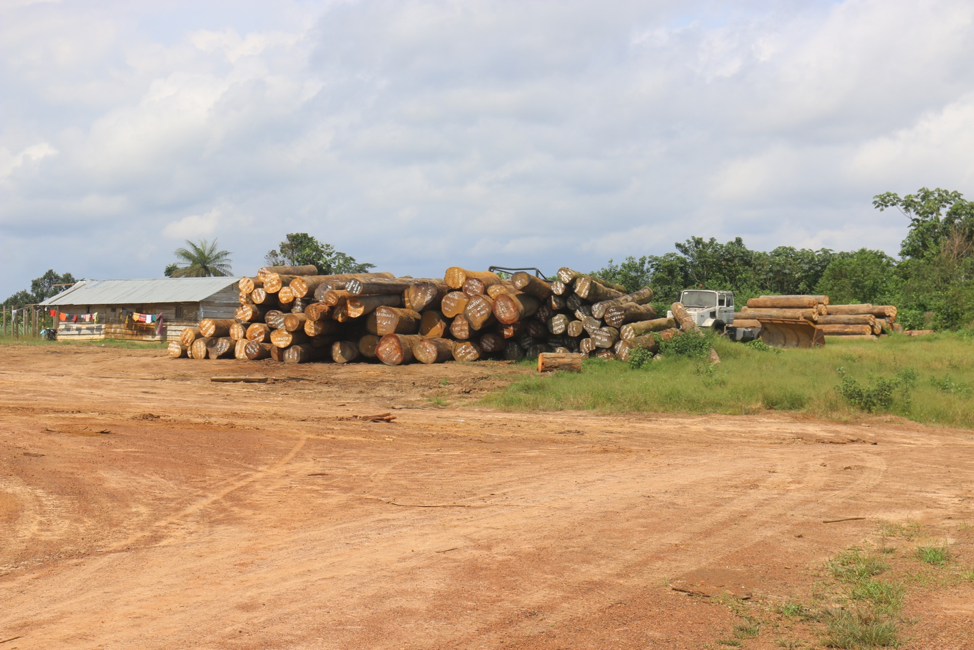
In Saul Town, the villagers halted Masayaha’s operations, stopping three trucks loaded with logs from being transported out of the community. It took a team of anti-riot police to end the daylong demonstration.
This reporter visited the scene of the riot last Monday and met the protesters under a palaver hut discussing their next course. Some appeared disgruntled, raging with anger.
“They got so angry. Imagine I got a problem with my heart but I walk [a long] distance to join the protest,” said Sarah Harris, a resident of one of the affected towns.
The community and the company had a meeting on Wednesday but did not resolve the problem in full according to Harris.
Masayaha pleaded to transport its logs, promising to build five bridges, according to Harris, but he and the other protesters said they would only negotiate with the company after the construction.
“We don’t have money to take the company to court,” said Harris. “This is the only power we have.”
This Story is a production of the Community of Forest and Environmental Journalists of Liberia (CoFEJ).

